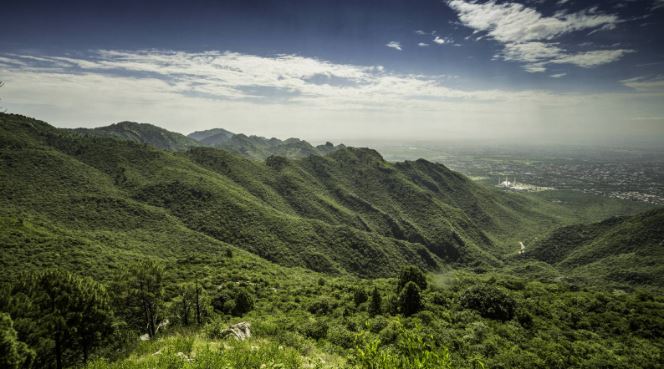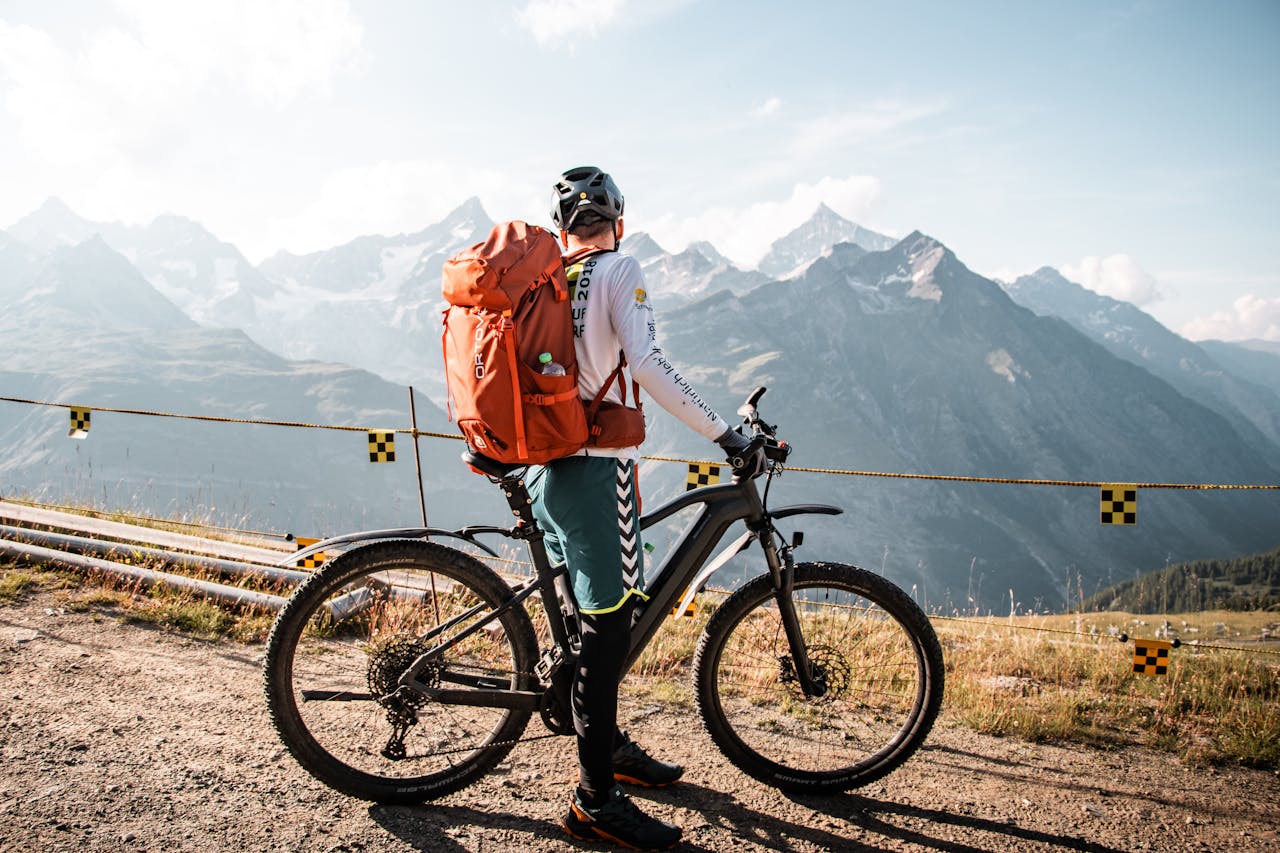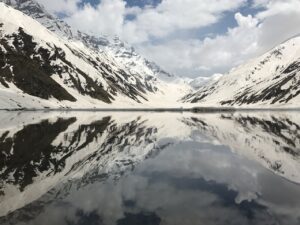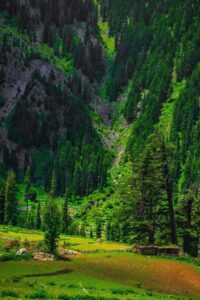Introduction
Tourists are often seeking the best cycling tours in eco-friendly destinations in Pakistan—and for good reason. With its dramatic landscapes, cultural richness, and growing eco-tourism scene, Pakistan offers cyclists a chance to explore some of the world’s most breathtaking regions while treading lightly on the environment. From the peaceful orchards of Swat Valley to the rugged trails of Hunza and the untouched beauty of Neelum, these cycling routes combine adventure with sustainability. Whether you’re an experienced cyclist or a nature lover looking to experience Pakistan’s wonders in a responsible way, these eco-friendly destinations provide the perfect balance of thrill and mindfulness. In this guide, we’ll uncover the top spots where you can pedal through nature, connect with local communities, and travel responsibly—all on two wheels.
Table of Contents
Why Choose Eco-Friendly Cycling Tours in Pakistan?
Cycling through Pakistan’s diverse landscapes isn’t just an adventure—it’s a conscious choice that supports both the environment and local communities. Choosing eco-friendly cycling tours in Pakistan allows travelers to reduce their environmental impact while experiencing the country in a more authentic and connected way.

1. Minimal Environmental Impact
Unlike cars or buses, bicycles produce zero emissions. Cycling helps preserve the natural beauty of Pakistan’s valleys, mountains, and forests by keeping air and noise pollution to a minimum. This is especially important in fragile ecosystems like the Hunza and Kalash valleys, where even small environmental changes can have long-term effects.
2. Support for Local Economies
Eco-tourism often encourages travelers to stay in locally-owned guesthouses, eat at small family-run cafés, and hire local guides. Cycling routes naturally pass through smaller, less commercialized areas, helping distribute tourism income more evenly across communities that are often overlooked.
3. Deeper Cultural Experiences
Traveling by bike slows you down—in the best way. It allows for spontaneous interactions with locals, a closer look at daily village life, and time to truly absorb the natural surroundings. Instead of rushing from one tourist attraction to the next, cyclists get to experience the journey itself as the destination.
4. Personal Health and Well-being
Cycling is great for physical fitness, but it also has mental health benefits. It encourages mindfulness, reduces stress, and offers a natural connection to your environment. For many travelers, cycling in the peaceful landscapes of Pakistan becomes a form of active meditation.
5. Promotes Responsible Tourism
Choosing eco-friendly tours sends a message. It shows that travelers care about sustainability and are willing to support responsible tourism models. As more people make these choices, it encourages tour operators and local businesses in Pakistan to adopt greener practices as well.
Top Eco-Friendly Cycling Destinations in Pakistan
Pakistan is a country of striking contrasts—towering peaks, fertile valleys, desert plains, and coastal roads—all offering unique cycling experiences. What makes these destinations special isn’t just their natural beauty, but their potential for sustainable travel. These eco-friendly cycling destinations in Pakistan are ideal for travelers seeking adventure with minimal environmental impact.
1. Hunza Valley – A Cyclist’s Paradise
Located in the Gilgit-Baltistan region, Hunza Valley is famous for its breathtaking scenery and hospitable communities. The valley offers smooth, winding roads flanked by snow-covered mountains, apricot orchards, and turquoise rivers.
Why it’s eco-friendly:
- Low traffic and clean air
- Community-run eco-lodges and organic farms
- Emphasis on conservation and waste reduction
Popular Cycling Route:
Karimabad to Passu (approx. 50 km) – Ride along the Karakoram Highway with dramatic views of Passu Cones and the Hunza River.
2. Skardu & Shigar Valley – High-Altitude Adventure
Surrounded by some of the highest peaks in the world, Skardu and the Shigar Valley offer a more rugged cycling experience for those looking to explore remote, pristine areas.
Why it’s eco-friendly:
- Minimal infrastructure = less pollution
- Opportunities for low-impact exploration like cycling, hiking, and camping
Popular Cycling Route:
Skardu to Shigar Fort (32 km) – Ends at a restored 17th-century fort now operated as a sustainable heritage hotel.
3. Swat Valley – Green Hills and Village Roads
Known as the “Switzerland of Pakistan,” Swat Valley is lush, peaceful, and full of flowing rivers and pine forests. It’s a fantastic destination for beginner to intermediate cyclists.
Why it’s eco-friendly:
- Growing support for community-based tourism
- Clean air and protected forest zones
- Local food production and eco-farming
Popular Cycling Route:
Mingora to Malam Jabba – A forest-lined road with scenic spots and local fruit stalls along the way.
4. Neelum Valley – Kashmir’s Hidden Gem
Tucked away in Azad Kashmir, Neelum Valley is a treasure for eco-travelers. With alpine forests, sparkling rivers, and charming wooden homes, it offers a tranquil escape from city life.
Why it’s eco-friendly:
- Use of solar energy in many guesthouses
- Low-volume tourism helps preserve the area’s natural balance
Popular Cycling Route:
Athmuqam to Kel (approx. 90 km) – Ride through picturesque valleys, with stops at Sharda for cultural exploration and riverside views.
5. Kalash Valleys – Cultural and Scenic Richness
The Kalash Valleys—Bumburet, Rumbur, and Birir—are home to one of Pakistan’s oldest and most unique indigenous communities. Cycling here is as much about cultural connection as it is about scenery.
Why it’s eco-friendly:
- Largely pedestrian-friendly and car-free areas
- Traditional sustainable living practices among locals
Popular Cycling Route:
Bumburet to Rumbur – A short but unforgettable ride through vibrant villages, terraced fields, and lush forests.
6. Khunjerab Pass – The Highest Paved Border Crossing
For experienced cyclists, Khunjerab Pass on the Pakistan-China border is the ultimate challenge. At over 4,600 meters above sea level, it’s one of the highest paved international roads in the world.
Why it’s eco-friendly:
- No local vehicle traffic allowed in protected national park zones
- High-altitude ecosystem preservation efforts
Popular Cycling Route:
Sost to Khunjerab Top – A grueling climb with unparalleled views of glaciers and wildlife like the ibex and snow leopard (if you’re lucky!).
Bonus Destination: Margalla Hills (Islamabad)
For those staying near the capital, the Margalla Hills National Park offers beginner-friendly cycling trails through forested areas and wildlife zones.

Why it’s eco-friendly:
- Protected national park
- No heavy traffic and plenty of shaded paths
Popular Cycling Spot:
Trail 5 and nearby routes – Great for a quick morning ride with views of the city skyline.
What to Pack for Eco-Friendly Cycling in Pakistan
Packing smart is essential when you’re planning a cycling tour—especially one that’s eco-friendly. You want to travel light, stay comfortable across different terrains and climates, and reduce your environmental footprint along the way.
Whether you’re exploring the lush valleys of Swat or the high-altitude trails of Hunza, here’s a comprehensive guide to what you should pack for a safe, sustainable cycling trip in Pakistan.
1. The Cycling Essentials
These are your must-haves for safety, comfort, and performance on the road:
- Sturdy bike – A mountain or hybrid bike is best for Pakistan’s mixed terrain. If renting, make sure it’s well-maintained and suited to the local roads.
- Helmet – Non-negotiable for safety.
- Cycling gloves – Reduce hand fatigue and provide a better grip.
- Padded shorts or cycling leggings – For long-distance comfort.
- Lightweight, breathable clothing – Layer up for changing mountain weather.
- Repair kit – Include a multi-tool, spare tube, tire levers, and a portable pump.
- Cycling shoes or trainers – Durable and suited for both biking and walking.
2. Eco-Friendly Gear
To keep your trip sustainable, consider bringing these environmentally friendly alternatives:
- Reusable water bottle – Preferably insulated to keep water cool in warm climates.
- Water filter or purification tablets – Reduces reliance on plastic bottles in remote areas.
- Solar charger or power bank – Keeps your devices charged using renewable energy.
- Biodegradable soap and toiletries – Gentle on the environment and perfect for natural settings.
- Reusable food containers or snack bags – Great for avoiding plastic waste on the go.
3. Smart Packing for All Conditions
Pakistan’s terrain and climate can vary significantly, so it’s wise to be ready for anything:
- Rain jacket or windbreaker – Lightweight and packable.
- Thermal base layers – Especially useful for early morning rides or high-altitude areas like Skardu or Khunjerab.
- Buff or neck gaiter – Multi-use for sun, wind, and dust protection.
- Sunglasses with UV protection – Especially important at higher elevations.
- Sunscreen (reef-safe or organic) – Protect your skin without harming nature.
4. Navigation & Communication
- Offline maps (Google Maps or Maps.me) – Internet access may be limited in remote areas.
- Local SIM card – For emergency calls and route updates.
- Notebook or journal – A great way to record your journey and reflect on the experience.
Optional but Useful Extras
- Compact sleeping bag or liner – Ideal if you’re staying in basic homestays or camping.
- First aid kit – Include essentials like band-aids, antiseptic wipes, and altitude sickness meds if needed.
- Travel towel – Quick-drying and lightweight.
- Trash bag – Carry your waste until you can dispose of it responsibly.
Safety and Sustainability Tips
When you’re cycling through Pakistan’s breathtaking landscapes, your safety and the impact you leave behind are both equally important. Whether you’re winding through the valleys of Swat or pedaling up the rugged trails of Skardu, being prepared ensures a smooth ride—and a responsible one.
Here are some practical safety and sustainability tips to help you make the most of your eco-friendly cycling adventure in Pakistan.
Safety First – Ride Smart, Stay Safe
1. Know Your Route
Before setting off, research your cycling route. Use offline maps, GPS, or connect with local guides to avoid getting lost—especially in remote or mountainous areas where signage may be limited.
2. Stay Visible
Wear bright or reflective clothing, especially if you’re cycling near roadways or in areas with traffic. A front and rear light can be helpful for foggy or early morning rides.
3. Ride During Daylight
Stick to daylight hours to avoid unexpected road conditions or wildlife. Early mornings are ideal for cycling in Pakistan, with cooler temperatures and quieter roads.
4. Carry Emergency Contacts
Keep a local SIM card in your phone and have important numbers saved—such as local tour operators, nearby accommodations, and emergency services.
5. Hydration and Nutrition
Always carry enough water, snacks, and basic supplies—especially on longer routes where stores and rest stops might be rare.
Sustainability on Two Wheels
Cycling is already a low-impact way to travel—but a few conscious habits can make it even more eco-friendly.
1. Leave No Trace
Everything you bring in, take out. That includes wrappers, bottles, and other waste. Carry a small trash bag or reusable pouch to store litter until you find a bin.
2. Support Local and Green
Stay at locally-owned guesthouses, eat at small eateries, and shop from village vendors. This not only reduces your carbon footprint but also supports the regional economy.
3. Avoid Plastic
Carry a reusable water bottle and filter system. Refill wherever you can—Pakistan has plenty of freshwater sources in mountainous areas.
4. Respect Nature and Wildlife
Don’t disturb wildlife, pick plants, or veer off designated trails. Stick to paths that minimize erosion and protect local ecosystems.
5. Use Eco-Friendly Gear
Choose biodegradable toiletries, solar-powered gadgets, and reusable containers. Even small swaps help reduce environmental harm over time.
Final Thoughts – Pedal Toward Purposeful Adventure
Exploring the best cycling tours in eco-friendly destinations in Pakistan isn’t just about chasing scenic views—it’s about traveling with intention. From the snow-capped peaks of Hunza to the culturally rich Kalash Valleys, every route offers a chance to connect deeply with nature, culture, and community. By choosing to cycle, pack consciously, and travel sustainably, you’re not only reducing your environmental impact but also helping local economies thrive. In return, you gain unforgettable memories, meaningful encounters, and the satisfaction of knowing your adventure leaves a lighter footprint. So next time you plan a trip, consider swapping the engine for a bicycle. Pakistan is waiting—with open roads and open hearts.
FAQ
Question1. How can I make my cycling tour in Pakistan eco-friendly?
Answer. Support local businesses, stay in eco-lodges, and use reusable water bottles. Choose routes with minimal environmental impact and engage in responsible tourism practices.
Question2. What type of bike is best for cycling tours in Pakistan?
Answer. Hybrid or mountain bikes are ideal for Pakistan’s varied terrain. They handle both smooth roads and rugged trails, ensuring a comfortable ride.
Question3. Are eco-friendly cycling tours in Pakistan safe for solo travelers?
Answer. Yes, but it’s safer to travel with a guide or in a group, especially in remote areas. Keep in touch with locals and ensure your bike is well-maintained.




